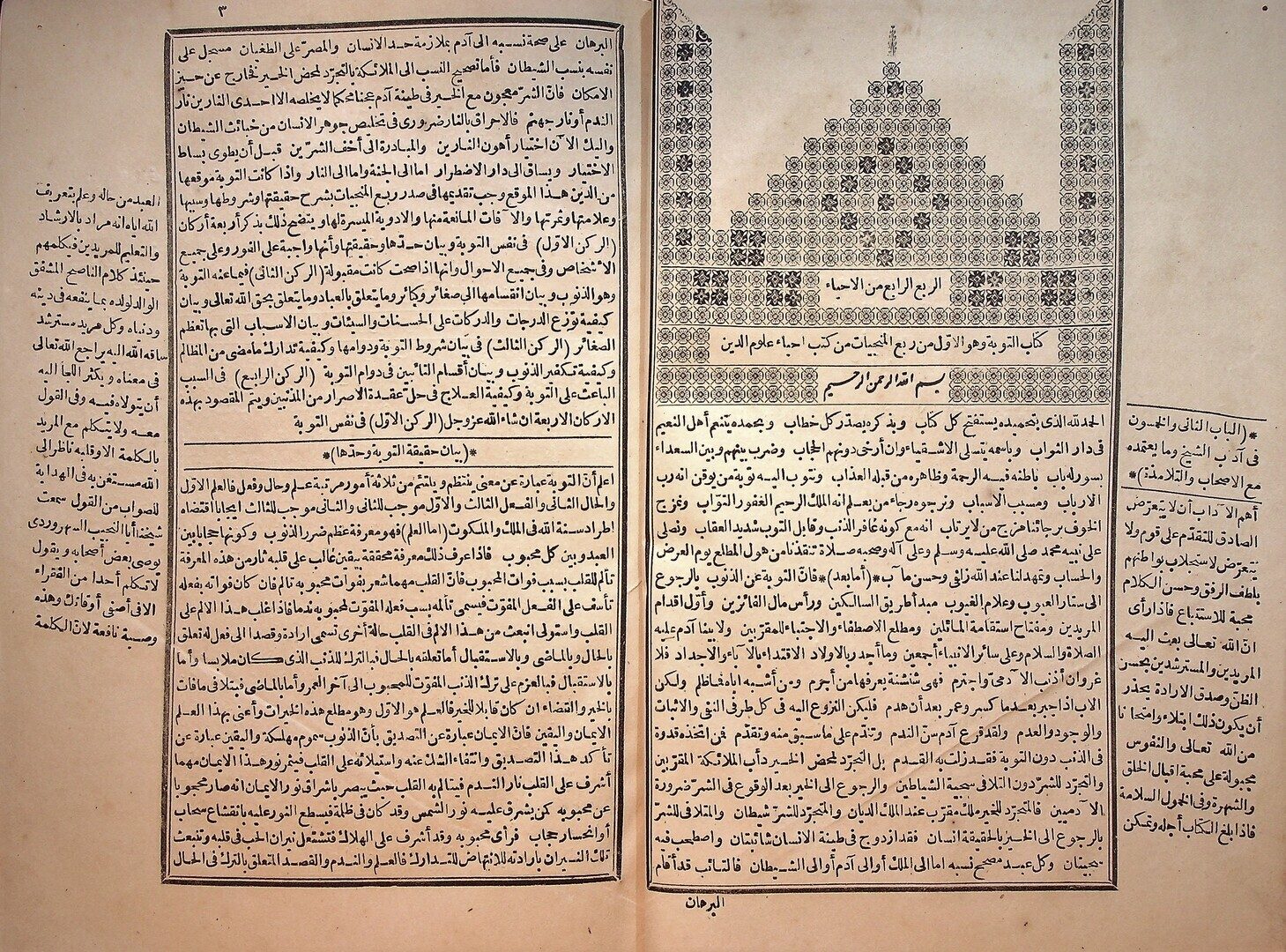Kitab Ihya’ ‘Ulum al-Din. [Revival of Religion’s Sciences]. FOUR VOLUMES.
Al-Ghazali, Abu Hamid Muhammad ibn Muhammad.
Synopsis
This work is widely regarded as the greatest work of Muslim spirituality. It was composed by al-Ghazali in the 11th century based on personal religious experience. Al-Ghazali directs the reader as to the true purpose of Knowledge. It is perhaps the most important book from the Ihya. The masterpiece of Imam al-Ghazali, unquestionably one of the greatest thinkers and theologians of Islam.
The Revival of the Religious Sciences is divided into four parts, each containing ten chapters. Part one deals with knowledge and the requirements of faith—ritual purity, prayer, charity, fasting, pilgrimage, recitation of the Qurʾān, and so forth; part two concentrates on people and society—the manners related to eating, marriage, earning a living, and friendship; parts three and four are dedicated to the inner life of the soul and discuss first the vices that people must overcome in themselves and then the virtues that they must strive to achieve.
The Imam Says in the Introduction ‘ I am no longer obliged to remain silent, because the responsibility to speak, as well as warn, has been imposed upon me by your persistent straying from the clear truth, and by your insistence upon fostering evil, flattering ignorance, and stirring up opposition against him who, in order to conform to the dictates of knowledge, deviates from custom” …
Imam Ghazali Abu Hamid Muhammad, famous in the world of learning as al-Ghazzal was born in 450 AH (1058 A.D) He was a Persian theologian, jurist, philosopher, and mystic. Al-Ghazali has been referred to by some historians as the single most influential Muslim after the prophet Muhammad. Within Islamic civilization he is considered to be a Mujaddid or renewer of the faith, who, according to tradition, appears once every century to restore the faith of the community.








